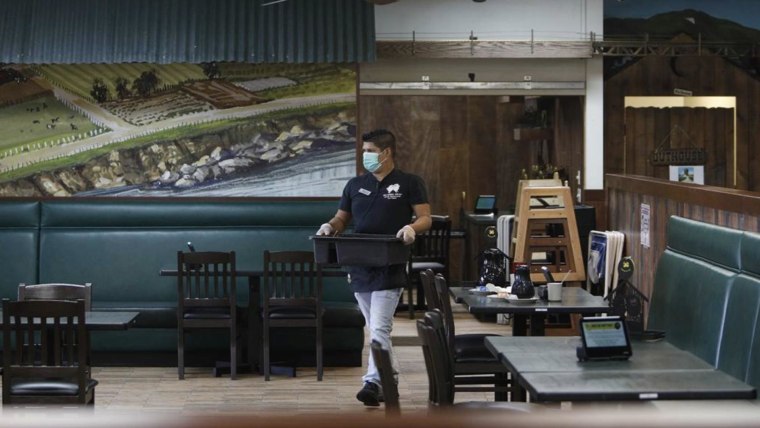I am one of the few surviving workers of Windows on the World, the famous restaurant that sat atop the North Tower of the World Trade Center. I worked there as a cook for three years until Sept. 11, 2001 — the fateful day that forever changed my life and the nation. Every single day since then, I think of my 76 brothers and sisters who perished. I am fortunate to be alive, but I am forever scarred by the horrors of losing friends and co-workers and the devastation of abruptly being robbed of the job that fed my family.
I call on restaurant owners and operators to adopt a “Right to Return” policy: Restaurants should guarantee their former employees will be the first to be rehired.
That’s why I understand how difficult it is for millions of restaurant workers who have lost their livelihood because of the coronavirus. For me, hope began to grow from the despair of 9/11 when I got a new job, and with it the assurance that my family and I would be all right, thanks to the connections of my fellow workers in the restaurant industry. Yet the same could not be said for many of my Windows on the World colleagues who struggled to find work in the restaurant industry for months, often with little help from our old employer.
Restaurant workers across the country who lost their jobs through no fault of their own are now struggling to make ends meet and have no assurance that they will be able to find work as states ease social distancing restrictions. These workers deserve to get their jobs back if and when their restaurants reopen. That is why I call on restaurant owners and operators to adopt a “Right to Return” policy: Restaurants should guarantee their former employees will be the first to be rehired if their jobs once again become available.
Amid the mourning and grief following 9/11, those of us who were fortunate enough to survive had to find work and rebuild our lives. This proved to be an incredibly difficult journey for many of us, as the New York City restaurant industry changed overnight. Many restaurant workers, including myself, are immigrants, which created particularly challenging personal and family circumstances that limited our ability to secure jobs of the same caliber. Immigrant workers, especially those who are undocumented, are often afraid to demand fair wages or the benefits they deserve, or raise concerns about their job conditions, for fear of retribution.
After 9/11, we were able to secure jobs for some of my old colleagues at the new restaurant in Times Square opened up by the former owner of Windows on the World. But a Right to Return benefit would have helped everyone who suffered job loss from the World Trade Center attacks, and would have made the process of obtaining new positions quicker and less anxiety-filled. We didn’t have that opportunity in place back then, but we have the possibility of easing the situation for restaurant workers today by learning from that experience.
Workers deserve loyalty from their employers, especially in the middle of a disaster such as a pandemic. For many, the restaurant industry isn’t just short-term employment but a field in which to build a career. It is only right they get the opportunity to rejoin that industry without having to repeat the job search process. This is also good for business: keeping a cohesive team together ensures a smooth and efficient operation and promotes staff loyalty.
The Right to Return is critical to protecting the restaurant workforce against large companies and franchisors who will use COVID-19 as an opportunity to cut costs by letting go of their experienced, higher-paid workers in favor of new workers who command a lesser salary. Those with higher salaries who are cut loose will be left to find a new job that could well pay minimum wage, setting them back financially — if they’re even able to find employment in a likely depressed economy.
Furthermore, the shutdown may give unscrupulous employers an easy path to get rid of staff whom they consider “troublemakers.” It is often long-tenured workers who have the knowledge and clout to advocate for safe workplace conditions. It is their experience with the same company and management that puts them in the strongest position to fight exploitation and organize their fellow workers. Without those people on the job, the entire workforce becomes more vulnerable.
It’s still an incredibly dangerous time to be working in restaurants, and the Right to Return must be accompanied with measures that assure the safety of employees. Restaurants should only reopen and rehire when their areas have met these safety requirements, and when employees can be tested and are guaranteed protective equipment.
The support that I received after 9/11 helped me get back on my feet after a moment of total devastation. The country once again finds itself in an extraordinarily difficult time. Embracing the American tenets of democracy, brotherhood and solidarity will enable us to rise to the challenge and fight the pandemic. This crisis should not be manipulated to further weaken the restaurant workforce, whose lives right now are on the line.












